Scissor Lift Training in Toronto: Certification and Safety Procedures
Running a scissor lift calls far more than just controlling the levers. To guarantee the welfare of operators and their colleagues, one must have a thorough awareness of safety procedures and follow rules on regulations. Workers in sectors including manufacturing, maintenance, and warehouse operations in Toronto depend on scissor lift training. This blog discusses the certification process and safety procedures associated with scissor lift operations in Toronto.
The Importance of Scissor Lift Certification
Versatile tools used in many fields to complete jobs at height are scissor lifts. Their operation does, however, carry great risk. Hence, comprehensive training and certification are rather important. Before they may legally run this equipment, all aerial lift operators—including those running scissor lifts—must be trained and certified in Toronto. This accreditation guarantees operators’ knowledge to avoid mishaps and manage the lift properly.
What Does Scissor Lift Training Involve?
Training schedules in Toronto cover a range of essential topics to ensure that scissor lift operators are fully equipped for the problems they might face. These include:
• Operational Training: Operators learn about the different types of scissor lifts and their specific controls. They gain hands-on experience under supervised conditions, allowing them to understand the machinery’s nuances.
• Protection Education: Safety is a critical component of the training. Operators learn to conduct pre-operation checks to guarantee the tools are safe to use. They also know about the potential hazards associated with working scissor lifts, such as tipping, collisions, and falls.
• Danger Assessment and Management: Understanding the work atmosphere is crucial. Trainees are taught to assess the workplace for risks like uneven surfaces, overhead obstacles, and electrical lines. This knowledge is critical in planning safe operation paths and work procedures.
• Emergency Procedures: In the occasion of an emergency, understanding what to do is vital. Training includes how to safely lower the platform and evacuate in case the lift fails and how to respond to other potential emergencies like power failures.
Regulatory Essentials for Scissor Lift Operators in Toronto
Toronto’s regulatory framework provides that all operators are qualified to operate scissor lifts safely. This applies a series of examinations that test the operator’s ability to manage the equipment under different circumstances. Certificates are typically valid for an exact period, after which operators must undergo recertification to confirm their skills and understanding are up-to-date.
Helpful Tips for Safe Scissor Lift Operation
Beyond formal training and certification, there are helpful tips that operators should follow to keep safety while operating a scissor lift:
• Still, wear personal protective tools (PPE): This includes hard hats, safety harnesses, and, in some cases, eye safety.
• Never overload the lift: Adhering to the weight limitations prescribed by the manufacturer is crucial to control tipping.
• Keep the platform free of tools and debris: An uncluttered platform lowers the chance of slips and falls.
• Never use the lift in high winds or storms: Operating a scissor lift in bad weather can be hazardous due to expanded instability.
• Consistently use stabilizers and outriggers, if available: These additions help stabilize the lift when raised to high elevations.
Effective scissor lift training is key to providing workplace safety and operational efficiency. Safety First Training offers complete programs that equip operators with essential skills and knowledge. By completing this crucial certification, operators not only comply with legal requirements but also contribute to a safer working environment. Therefore, anyone aspiring to operate scissor lifts should prioritize obtaining proper training. This commitment to safety can significantly reduce workplace accidents and promote a culture of safety awareness among all team members.
Recent Blogs
- Aerial Lift Platform Training
- National Day of Mourning - April 28
- WHMIS Training in Richmond Hill
- Fire Safety Training Etobicoke
- FIRST AID & CPR TRAINING
- Aerial Lift Facts
- Why CMRAO Requires CPE Credits for Condo Managers & How to Earn Them
- WHMIS Training and Certification in Pickering
- Forklift Use in the Workplace
- WHMIS Training Certification in Brampton
- WHMIS Training and Certification in Markham
- Industrial Lift Equipment Training
- Online Safety Training
- Counterbalance Forklift Training Whitby
- WHMIS Certification in Vaughn
- Counterbalance Forklift Training in Ontario: Boost Safety and Compliance with Safety First Training
- Transportation of Dangerous Goods
- Scissor Lift and Genie Boom Training In Toronto
- Scissor Lift Training and Certification for Safe Operations
- Air Quality a Main Reason for Respirator Mask Fit Testing

